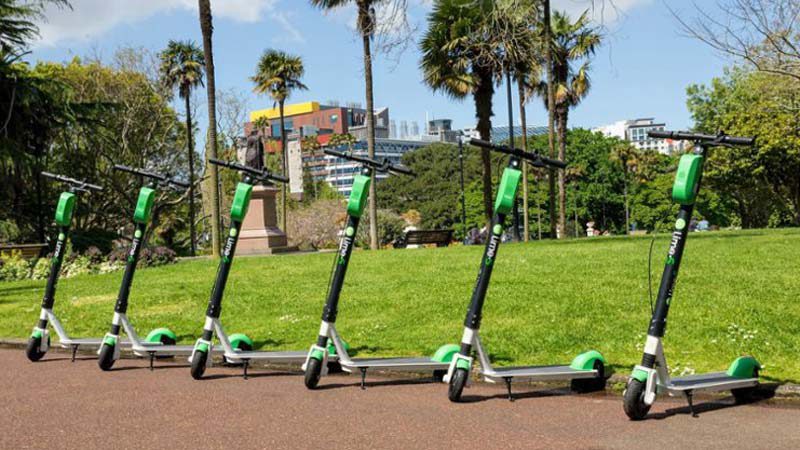Canberrans will soon be able to zip about town on shared electric scooters, as the ACT joins a growing number of cities worldwide embracing “last mile” transport alternatives in a bid to cut down traffic congestion and pollution.
Electric scooters have the potential to cut out a lot of inner city traffic but often cop a lot of shade from critics with concerns about safety, particularly when used on pedestrian walkways.
Legislation outlaws e-scooters in many states across Australia, but as interest in them grows they, along with electric bikes and skateboards, are becoming an increasingly common sight.
The address this change in wind of personal transportation, the ACT recently changed its laws to allow e-scooters to be ridden at a speed of up to 15 km/hr on footpaths, and up to 25 km/h in other locations as permitted.
The new trial, for which the ACT government is inviting expressions of interest from two e-scooter operators, will look at how e-scooter permits will be allowed to operate on public land in way that complies with road rules and keeps pedestrian safety a priority.
“E-scooters offer a new way of taking short, ‘first mile/last mile’ trips across the city, including connecting to and from public transport, said minister for roads and active travel, Chris Steel, in a statement.
“This isn’t just a new form of mobility, it will see the start of a brand new industry in the ACT, creating jobs in the management and maintenance of shared e-scooters.”
Steel said in a statement that policy and guidelines have been developed to set out the ACT Government’s expectations for an e-scooter sharing scheme to deliver better transport choices for Canberrans.
Each e-scooter operator will be allowed to operate 750 e-scooters a piece under the Public Unleased Land Act 2013, and they will be made available both in the inner city and another Canberra region to test the program in a range of environments.
“We anticipate that the e-scooters will be popular with tourists, using them to explore Canberra and move between our national and cultural institutions,” Steel said.
He says that both the National Capital Authority (NCA) and the Australian National University (ANU) have been approached to take part in the program, so that e-scooters use on NCA and ANU land will be seamless with use on other thoroughfares.
“Operators will be expected to manage their e-scooters to ensure that they do not clutter our streetscapes and urban areas, that their fleets are regularly rebalanced, and that they do not block people walking or moving through public spaces,” says Steel.
“The Government will be closely monitoring the safety of the e-scooter share schemes. Operators must demonstrate that they are safe, and the ACT Government reserves the right to act in the public interest to put safety first.”
It is expected that Canberrans will be able to start using the e-scooter sharing services as soon as August, after submissions for the dockless e-scooter scheme close on August 3, 2020.

Bridie Schmidt is associate editor for The Driven, sister site of Renew Economy. She has been writing about electric vehicles since 2018, and has a keen interest in the role that zero-emissions transport has to play in sustainability. She has participated in podcasts such as Download This Show with Marc Fennell and Shirtloads of Science with Karl Kruszelnicki and is co-organiser of the Northern Rivers Electric Vehicle Forum. Bridie also owns a Tesla Model Y and has it available for hire on evee.com.au.

